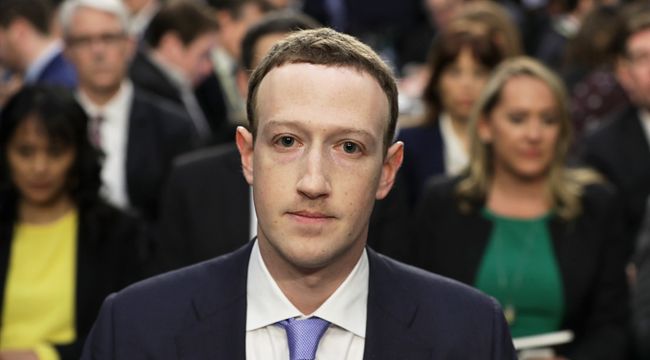
Remember when Facebook didn’t punish or boot Donald Trump after he made anti-Muslim comments on their site in 2015, and then he became president? Remember how the site was then overrun by Russian trolls and by Cambridge Analytica, the company that stole user data? And remember how the site, despite significant financial losses, still more or less flourishes anyway? Well, there’s one way to explain that. According to a bombshell investigative report by The New York Times, the company combatted their considerable problems by first doing nothing, then by trying to deflect attention away from the public, specifically by further demonizing 88-year-old conservative boogeyman George Soros.
The lengthy and exhaustively reported piece alleges that Facebook highers-up stumbled when they discovered hate speech in the run-up to what became Trump’s electoral college win, then, around the same time, misinformation being spread by a foreign power. According to the piece, founder Mark Zuckerberg was both in over his head, more a techie than a political guru, and eager to deflect criticism.
While Mr. Zuckerberg has conducted a public apology tour in the last year, Ms. Sandberg has overseen an aggressive lobbying campaign to combat Facebook’s critics, shift public anger toward rival companies and ward off damaging regulation. Facebook employed a Republican opposition-research firm to discredit activist protesters, in part by linking them to the liberal financier George Soros. It also tapped its business relationships, lobbying a Jewish civil rights group to cast some criticism of the company as anti-Semitic.
Among the biggest jaw-droppers (apart from that) is this: When confronted with language from the then-future president that was widely-condemned as bigoted — namely his calls for a “total and complete shutdown” of Muslims entering the United States, in a post that was shared 15,000 times in 2015 — Facebook top brass deferred to one Joel Kaplan, a well-connected Republican who had been hired as a Washington representative after the GOP seized control of the House in 2010. When it was debated whether Trump had violated Facebook’s terms of service, Kaplan stepped in.
Mr. Kaplan argued that Mr. Trump was an important public figure and that shutting down his account or removing the statement could be seen as obstructing free speech, said three employees who knew of the discussions. He also said it could also stoke a conservative backlash.
“Don’t poke the bear,” Mr. Kaplan warned.
And so Trump stayed.
The NYT piece goes into detail about how this, combined with the Russian bots and the Cambridge Analytica scandal, created a perfect storm that caused Zuckerberg and company to consult a right-wing company that would pull a favorite move amongst Republicans, as well as anti-Semitic groups: try to connect the critics to Soros, the famed — and, in some far-right circles, infamous — investor, philanthropist, liberal crusader, and Holocaust survivor. Soros is the go-to target for conservatives — and anti-Semites — when they need to demonize their critics, usually by saying he’s funding their efforts. (Soros was also recently blamed by some conservatives for funding the “caravan” of migrants.)
There is one fairly amusing tidbit buried in this dystopian and shocking article, and it’s this: Zuckerberg was so enraged by criticism that when Tim Cook, CEO of Apple, made what amounts to a subtweet of Facebook, chiding their lack of privacy concerns, Zuckerberg retaliated in the most petty way possible: He ordered his management team to switch to Androids.
On an unrelated note, one can currently watch David Fincher’s 2010 film The Social Network for free if one subscribes to Starz.
(Via The New York Times)
